It’s rare to come across European people here, not even a dozen since we landed.
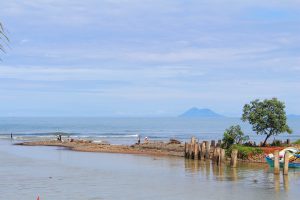
After a visit of the old harbour of Jakarta, we left the city to reach a less crowded region close to Karang volcano. Hitchhiking is difficult, almost all cars are buses or taxis. And no one understands why a European guy doesn’t want to pay. It makes us think a lot about what we do. On one side paying 10-20 euros a day for transportation may double our budget but for them getting money or not has far more consequences than our hypothetical banqueroute. As much as we can, we convince ourselves that travelling from bus to hotel wouldn’t give the same taste.
Example:
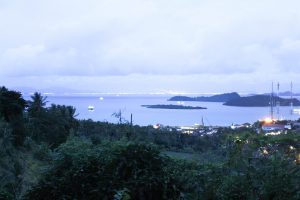
The first night after leaving Jakarta, we look for a place to sleep in a lost village. It’s already dark outside. Nobody understands and people talk about hotels 50km away, and they look surprised when we ask for a simple shelter. Finally, a teacher proposes us to sleep in his school and takes us on his scooter, together with our bags. We end up visiting a muslim school, first the one for boys, then for girls. Guys are quite shy, but girls start to be a little bit hysterical, ask for our status and religion….well it was great and funny. The deal was to exchange a place to sleep with a speech to motivate these young people to learn English. A win-win experience in front of a few hundred teenagers. And many selfies on the social networks.
Is it finally better to travel from bus to hotels? Exchange matters.
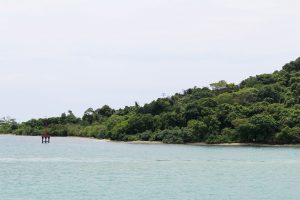
Next day: a night in an empty house that we found on a hill at the end of a road. Beautiful view. During the night, we had the visit of young guys that went away excusing themselves, a safe place.
What else but children’s smiles and hello mister echoing in the air ? Or these guys smiling or a bit upset when they read “numpang gratis” (free lift) on our paper. They stop and ask so many questions in a language we don’t understand, we try as much as possible to explain them our trip, for the sake of the next backpackers.
Tonight we sleep in a police officer’s house, nice place, a tour of food specialities, from goat feet to ginseng and eggs drink. We finish the evening with a gangsta guitarist and a retired policeman with nice stories to share, he worked in Amsterdam and got expelled, tried to create business between the two countries but failed. All that with a good bottle of Indonesian wine with local and reggae songs.
We had a lot of luck these days. We want to dedicate them to those we already miss, and who let us go.
Terih Makasih (Thanks)
Leave a Comment
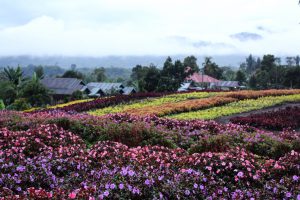
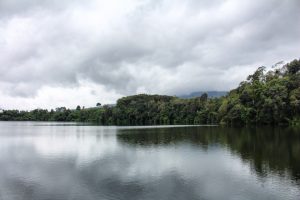
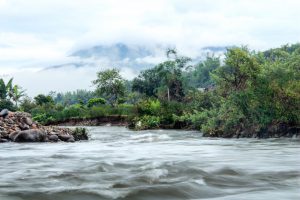
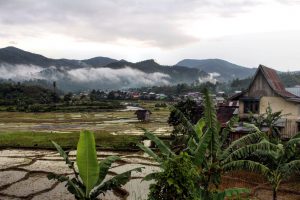
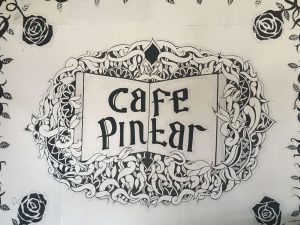
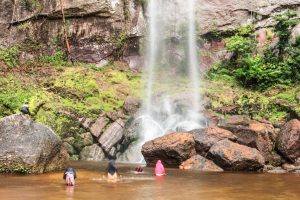 We met then another guy, Andre, a pharmacist, and together we crossed Bukittinggi and finally stopped in Payakumbuh where we slept in the same hotel room and chat a lot. The day after Andre made us discover the area by car, he had time as he was here for vacations. We exchanged ideas about occidental sexuality, and he was reassured that reality was far more “moral” than what youtube and series show here in Indonesia.
We met then another guy, Andre, a pharmacist, and together we crossed Bukittinggi and finally stopped in Payakumbuh where we slept in the same hotel room and chat a lot. The day after Andre made us discover the area by car, he had time as he was here for vacations. We exchanged ideas about occidental sexuality, and he was reassured that reality was far more “moral” than what youtube and series show here in Indonesia.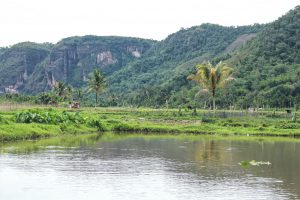
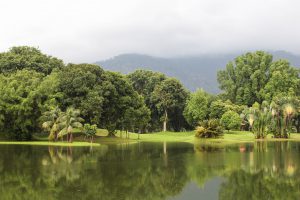 After Port Klang we headed in direction of Lumut, having lifts with Hindu, Muslim, and Christian guys. The first of them showed us scars made by 4 Indian robbers and then warned us to avoid them. But the next truck and the next car were driven by Indian cheerful guys. Yes we’ll be careful, but not against a whole community. These contradictions and fears, we felt it among Chinese against muslim Malais too and vice versa.
After Port Klang we headed in direction of Lumut, having lifts with Hindu, Muslim, and Christian guys. The first of them showed us scars made by 4 Indian robbers and then warned us to avoid them. But the next truck and the next car were driven by Indian cheerful guys. Yes we’ll be careful, but not against a whole community. These contradictions and fears, we felt it among Chinese against muslim Malais too and vice versa.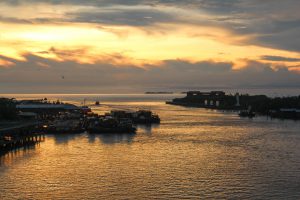 By the way, everybody here talks about the recent strike in Kuala Lumpur: just after we left 30 000 people gathered on the streets to ask the prime minister to quit his job. Malaysia is in a bad situation for 5 years, and the government is made responsible for inaction and potential corruption. It’s the biggest strike in the country’s history.
By the way, everybody here talks about the recent strike in Kuala Lumpur: just after we left 30 000 people gathered on the streets to ask the prime minister to quit his job. Malaysia is in a bad situation for 5 years, and the government is made responsible for inaction and potential corruption. It’s the biggest strike in the country’s history.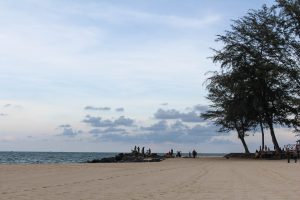 In Songkhla we find a house close to the old harbour with the manager of an ice-cream distribution company. The alphabet has changed, but the smiles stayed the same. We hope we cansend you this good mood overseas.
In Songkhla we find a house close to the old harbour with the manager of an ice-cream distribution company. The alphabet has changed, but the smiles stayed the same. We hope we cansend you this good mood overseas.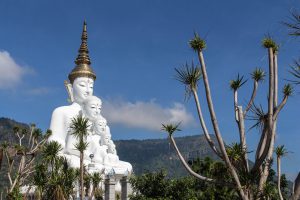 To come back to our trip city per city, after Songkhla we spent the night in Nakhon Si Thammarat in a shop selling tires, and the next morning we ate a really good Hong-Kong breakfast made of many bamboo plates cooked altogether with steam. Then we left for Tha Sae and discovered a temple built close to an impressive cave populated with Bouddhas statues.
To come back to our trip city per city, after Songkhla we spent the night in Nakhon Si Thammarat in a shop selling tires, and the next morning we ate a really good Hong-Kong breakfast made of many bamboo plates cooked altogether with steam. Then we left for Tha Sae and discovered a temple built close to an impressive cave populated with Bouddhas statues.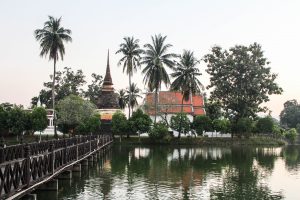 After we travelled toward the western mountains on a really nice road, and made some contacts in a market to finally find a place to sleep on the sport fields of Lan Sak city.
After we travelled toward the western mountains on a really nice road, and made some contacts in a market to finally find a place to sleep on the sport fields of Lan Sak city.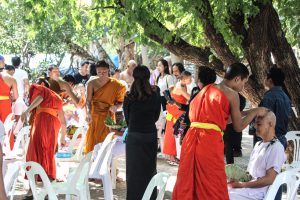 Now we are with a nice host in Khon Kaen area, his mother is spoiling us and we try food again. We also had the opportunity to see 50 employees of a company shaving their head to become monks for a few weeks, for the king of course. About monks, it is apparently a step in any education here, as a military service and for instance our host did 5 months of meditation after his master degree.
Now we are with a nice host in Khon Kaen area, his mother is spoiling us and we try food again. We also had the opportunity to see 50 employees of a company shaving their head to become monks for a few weeks, for the king of course. About monks, it is apparently a step in any education here, as a military service and for instance our host did 5 months of meditation after his master degree.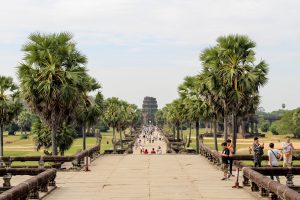 In Siem Reap, the city close to Angkor Wat, luxurious hotels are being built all along the road, which is contrasting a lot with the villages we crossed before. Tuktuk drivers are running the place, all having an hostel somewhere.
In Siem Reap, the city close to Angkor Wat, luxurious hotels are being built all along the road, which is contrasting a lot with the villages we crossed before. Tuktuk drivers are running the place, all having an hostel somewhere.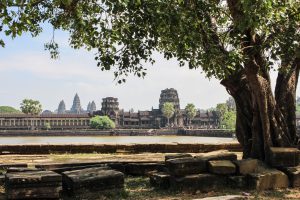 Then we moved to Battambang where we spent two nights. The first in a school which finances itself with farming, sewing clothes and hosting tourists. One of the young women there had two jobs 9h a day everyday to pay the university of her siblings, while another one explained us how difficult it was to get married with her boyfriend, because of religious and financial issues.
Then we moved to Battambang where we spent two nights. The first in a school which finances itself with farming, sewing clothes and hosting tourists. One of the young women there had two jobs 9h a day everyday to pay the university of her siblings, while another one explained us how difficult it was to get married with her boyfriend, because of religious and financial issues.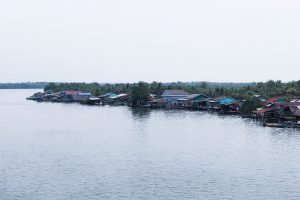 Then we moved to a floating village, where the stereotype of muddy road and small shelters was even more true than the previous days. We have to say though that they live really well in it, with a lot of comfort. Hamac and outdoor kitchen suit perfectly the weather.
Then we moved to a floating village, where the stereotype of muddy road and small shelters was even more true than the previous days. We have to say though that they live really well in it, with a lot of comfort. Hamac and outdoor kitchen suit perfectly the weather.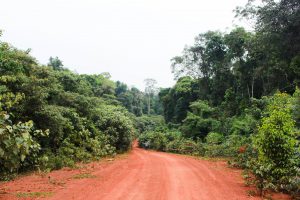 In the morning we waited one hour and a half for three cars, the last one driving us through the jungle to Oh Saom. The area is beautiful but quite hostile, with lakes that surely hide crocodiles and tigers eating everything from the chicken to the buffalo. Not sure that the 5 dogs per family are enough to protect the livestock.
In the morning we waited one hour and a half for three cars, the last one driving us through the jungle to Oh Saom. The area is beautiful but quite hostile, with lakes that surely hide crocodiles and tigers eating everything from the chicken to the buffalo. Not sure that the 5 dogs per family are enough to protect the livestock.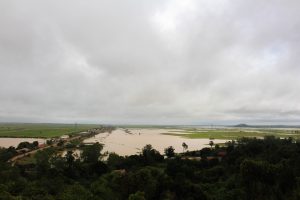 The warehouses for textile industry follow the road to Phnom-Penh, some with Chinese label, which confirms the shift of the industry from a country to another. Around 7am minibus and scooters start to move around, some people stopping by like us to eat some rice porridge with Mekong fish and doughnut before going to work.
The warehouses for textile industry follow the road to Phnom-Penh, some with Chinese label, which confirms the shift of the industry from a country to another. Around 7am minibus and scooters start to move around, some people stopping by like us to eat some rice porridge with Mekong fish and doughnut before going to work.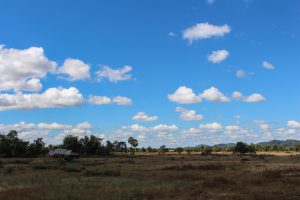 To go out of it turned to be complex. After 5km walking we found a nice hitchhiking spot but a couple stops and take us back to the center despite us telling them to stop. We had to negotiate with them and at the bus station where they stopped, we finally made them take us back where we were. We reach Chealea at the end of the day, and are welcomed in a Pagoda on a hill. Second problem of the day, the street restaurant doesn’t have food so we have to walk 2km to find dried meat and rice.
To go out of it turned to be complex. After 5km walking we found a nice hitchhiking spot but a couple stops and take us back to the center despite us telling them to stop. We had to negotiate with them and at the bus station where they stopped, we finally made them take us back where we were. We reach Chealea at the end of the day, and are welcomed in a Pagoda on a hill. Second problem of the day, the street restaurant doesn’t have food so we have to walk 2km to find dried meat and rice.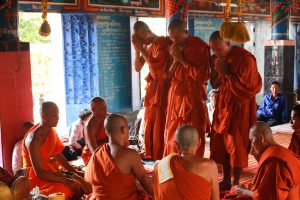 Three young guys become monks the day after and we can stay two nights to watch the ceremony. The karma comes definitely back just before leaving Cambodia: a couple going to a wedding stops for us and we get the second ceremony of the week. We cheer with the newly wedded and eat with their families, among almost one thousand of guests. The rites are quite different from the Christian’s ones. For instance the guests bring gifts one after another in the broom’s room, after a procession where the more traditional gifts are at the front. Or the family pretends to cut the hair of the couple while sprinkling water with a rose. We will try to learn more details about these symbols and their meaning when we are back.
Three young guys become monks the day after and we can stay two nights to watch the ceremony. The karma comes definitely back just before leaving Cambodia: a couple going to a wedding stops for us and we get the second ceremony of the week. We cheer with the newly wedded and eat with their families, among almost one thousand of guests. The rites are quite different from the Christian’s ones. For instance the guests bring gifts one after another in the broom’s room, after a procession where the more traditional gifts are at the front. Or the family pretends to cut the hair of the couple while sprinkling water with a rose. We will try to learn more details about these symbols and their meaning when we are back.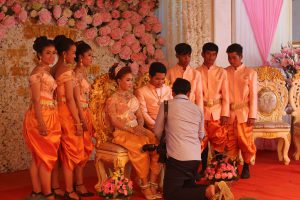 We leave this party well fed and cross the border with Laos. The south of the country is full of tourists who came to admire the dozens of islands on the Mekong river. We have a short view before going to sleep on a rice field. The ground and the trees are dry in comparison with Cambodia and Thailand and we observe for the first time a real difference of season after the wet Indonesia.
We leave this party well fed and cross the border with Laos. The south of the country is full of tourists who came to admire the dozens of islands on the Mekong river. We have a short view before going to sleep on a rice field. The ground and the trees are dry in comparison with Cambodia and Thailand and we observe for the first time a real difference of season after the wet Indonesia.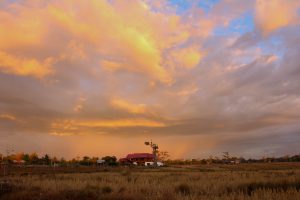 We feel good to talk, the pagodas being a place used to help poor or old people, we don’t like to come and go without giving anything in exchange.
We feel good to talk, the pagodas being a place used to help poor or old people, we don’t like to come and go without giving anything in exchange.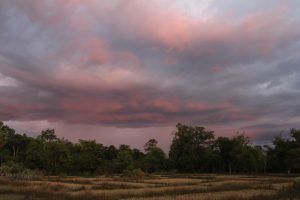 Close to Khasmida, the only person among fifty to know a little English was transsexual and was feeling totally accepted in the community, which was somehow great in our opinion. We exchanged a bit with her and moved then to camp close to the lake that was actually a muddy pond. Malaria will catch us one day!
Close to Khasmida, the only person among fifty to know a little English was transsexual and was feeling totally accepted in the community, which was somehow great in our opinion. We exchanged a bit with her and moved then to camp close to the lake that was actually a muddy pond. Malaria will catch us one day!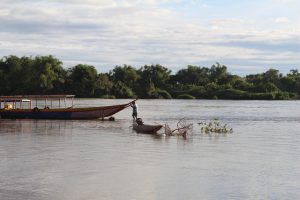 About the legends, we decided to take as many videos and note as many things as possible about people’s life and traditions, and we may display it on an interactive map here. The documentary seems complex to do, the situations being too complex and different to have any coherence within a movie. We’ll see!
About the legends, we decided to take as many videos and note as many things as possible about people’s life and traditions, and we may display it on an interactive map here. The documentary seems complex to do, the situations being too complex and different to have any coherence within a movie. We’ll see!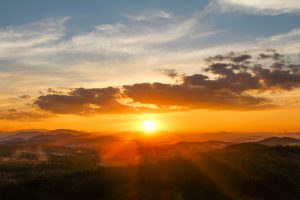 The forests bring some wealth to the people, with many skidding trucks around, but we can also spot gold panning and looming on the doorsteps.
The forests bring some wealth to the people, with many skidding trucks around, but we can also spot gold panning and looming on the doorsteps.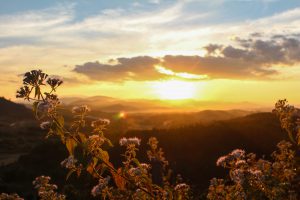 Unfortunately we couldn’t meet that many people on the road, and couldn’t discover more precisely these crafts, the language barrier and a kind of shyness of people not helping at all.
Unfortunately we couldn’t meet that many people on the road, and couldn’t discover more precisely these crafts, the language barrier and a kind of shyness of people not helping at all.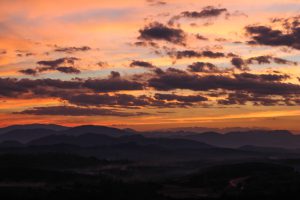 People actually drive really bad, we’ve seen many accidents of trucks on the side and also a probably dead woman on her scooter. The houses are built as close as one meter from the road, cars go there up to 80 km/h, and children are sent to collect reed along the curves. And you can add to this people parking in curves or in the middle of the road, these roads being the main ones in Laos. We hope this country is doing or will do some awareness campaigns…
People actually drive really bad, we’ve seen many accidents of trucks on the side and also a probably dead woman on her scooter. The houses are built as close as one meter from the road, cars go there up to 80 km/h, and children are sent to collect reed along the curves. And you can add to this people parking in curves or in the middle of the road, these roads being the main ones in Laos. We hope this country is doing or will do some awareness campaigns…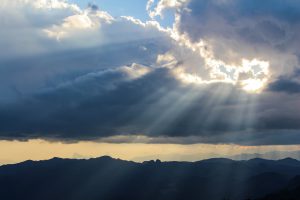 In Oudomxay area, young girls and boys wear traditional clothes to celebrate the end of the year. Here, already from the 30th of December the streets are alive and sound systems turned on. We slept in a vocational school where you could learn about farming, construction, catering and so on. But the administration was out to celebrate new year and those still in the place hesitated to let us camp inside.
In Oudomxay area, young girls and boys wear traditional clothes to celebrate the end of the year. Here, already from the 30th of December the streets are alive and sound systems turned on. We slept in a vocational school where you could learn about farming, construction, catering and so on. But the administration was out to celebrate new year and those still in the place hesitated to let us camp inside.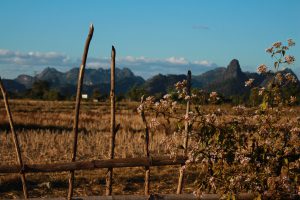 Therefore we are leaving Laos with the feeling we missed many things… And we had harder time than before to find welcoming people or just lifts. That’s the game, and it’s probably about luck. Our next step will be North Vietnam, where we’ll try to get the Chinese visa.
Therefore we are leaving Laos with the feeling we missed many things… And we had harder time than before to find welcoming people or just lifts. That’s the game, and it’s probably about luck. Our next step will be North Vietnam, where we’ll try to get the Chinese visa.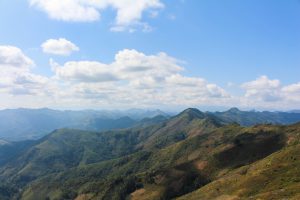 In Dien Bien Phu at around 10pm, we have some difficulties to find a place for our tent. Our first night in Vietnam will be a great one though: a student stops with his electric scooter and spontaneously invites us to his home. We probably wouldn’t have done it in such a dark street with two tall guys in black…
In Dien Bien Phu at around 10pm, we have some difficulties to find a place for our tent. Our first night in Vietnam will be a great one though: a student stops with his electric scooter and spontaneously invites us to his home. We probably wouldn’t have done it in such a dark street with two tall guys in black…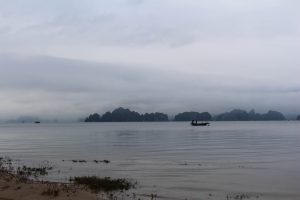 After Son La we have to wait 4h while hitchhiking but the first car takes us directly to Hanoi, through beautiful mountains surrounded by rice fields. In Hanoi we walk a bit to reach our couchsurfer Da in a building dedicated to startups and co-working.
After Son La we have to wait 4h while hitchhiking but the first car takes us directly to Hanoi, through beautiful mountains surrounded by rice fields. In Hanoi we walk a bit to reach our couchsurfer Da in a building dedicated to startups and co-working.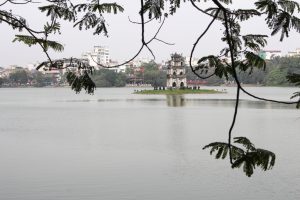 Another one sells PRM software, another is the CEO of a water distribution company, and so on… We had therefore a good view on the entrepreneurship here, plus all this activity on the streets, and we’ll keep a good memory of the city. We just regret the mess on the streets, and the lack of any driver’s skill there.
Another one sells PRM software, another is the CEO of a water distribution company, and so on… We had therefore a good view on the entrepreneurship here, plus all this activity on the streets, and we’ll keep a good memory of the city. We just regret the mess on the streets, and the lack of any driver’s skill there.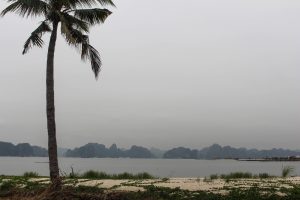 The next day we go to Ha Long, hitchhiking through so many buses and taxis… The coast is disfigured by the hotels, but the bay itself disappears in the fog and seems inaccessible to the tourists. It is only in appearance when we see how many ferrys slip between the islands.
The next day we go to Ha Long, hitchhiking through so many buses and taxis… The coast is disfigured by the hotels, but the bay itself disappears in the fog and seems inaccessible to the tourists. It is only in appearance when we see how many ferrys slip between the islands.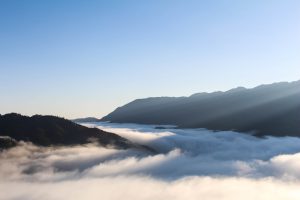 Then we headed to Lao Cai, a rich town, with so many jewellery shops. We sleep there on the hills and leave again to Sa Pa. There is fog all along the way but the sun finally goes through in the afternoon. We therefore climb a little bit in the muddy fields until we find a place at 1600m, where we have a nice view on the valley. In the morning we enjoy a nice sea of clouds and we go back to Lao Cai.
Then we headed to Lao Cai, a rich town, with so many jewellery shops. We sleep there on the hills and leave again to Sa Pa. There is fog all along the way but the sun finally goes through in the afternoon. We therefore climb a little bit in the muddy fields until we find a place at 1600m, where we have a nice view on the valley. In the morning we enjoy a nice sea of clouds and we go back to Lao Cai.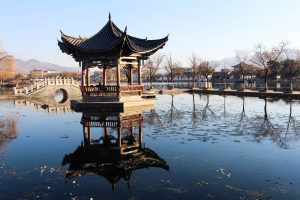 Just after the border, a 20yo couple stops and invites us for dinner. We spend our first days in China with them, in a community organized around a basketball field, and surrounded by banana plantations. Each family living there wants to invite us for a meal and our appetite has to follow the rhythm, moreover they seem to eat 4 times a day in the area.
Just after the border, a 20yo couple stops and invites us for dinner. We spend our first days in China with them, in a community organized around a basketball field, and surrounded by banana plantations. Each family living there wants to invite us for a meal and our appetite has to follow the rhythm, moreover they seem to eat 4 times a day in the area.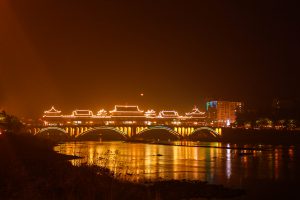 The first Chinese landscapes are huge, the first villages are cities, where tall buildings are aligned along the roads. The infrastructures are impressive and our map is not up to date anymore, the concrete is still warm and the roads are bright.
The first Chinese landscapes are huge, the first villages are cities, where tall buildings are aligned along the roads. The infrastructures are impressive and our map is not up to date anymore, the concrete is still warm and the roads are bright.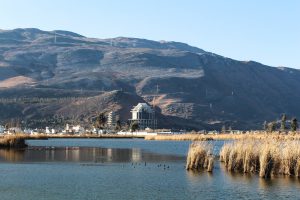 One of the village where we sleep is specialised in silver crafting for several centuries. And even if few houses or temples seem old, this quite touristic place is keeping some charm and its village soul. It was the same in Dali, and it seems that tourism doesn’t change that much the cities and the people.
One of the village where we sleep is specialised in silver crafting for several centuries. And even if few houses or temples seem old, this quite touristic place is keeping some charm and its village soul. It was the same in Dali, and it seems that tourism doesn’t change that much the cities and the people.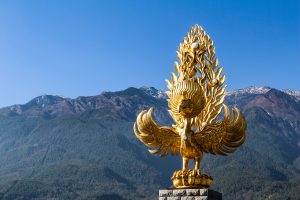 In Chengdu we spend the new year with a family, in Xin Du district. We are warmly welcomed, again, and we enjoy the sound of firecrackers and the fireworks popping from everywhere around us. These are more or less forbidden in Chengdu center but not here. We visit a big Chinese temple full of people, and we throw the incense in the fire before sending some balloons in the night. In the morning the firecrackers sing again.
In Chengdu we spend the new year with a family, in Xin Du district. We are warmly welcomed, again, and we enjoy the sound of firecrackers and the fireworks popping from everywhere around us. These are more or less forbidden in Chengdu center but not here. We visit a big Chinese temple full of people, and we throw the incense in the fire before sending some balloons in the night. In the morning the firecrackers sing again.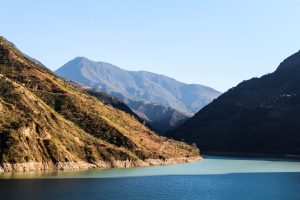 We will soon buy gloves and hats to fight the minus temperatures of the North. Pollution is visible too but our nose gets cold and we cannot feel it. People warn us regularly about the sand storms between Urumqi and Beijing, we’ll see. To go there when everything is fine wouldn’t it be cheating ? Till some limits 😉
We will soon buy gloves and hats to fight the minus temperatures of the North. Pollution is visible too but our nose gets cold and we cannot feel it. People warn us regularly about the sand storms between Urumqi and Beijing, we’ll see. To go there when everything is fine wouldn’t it be cheating ? Till some limits 😉